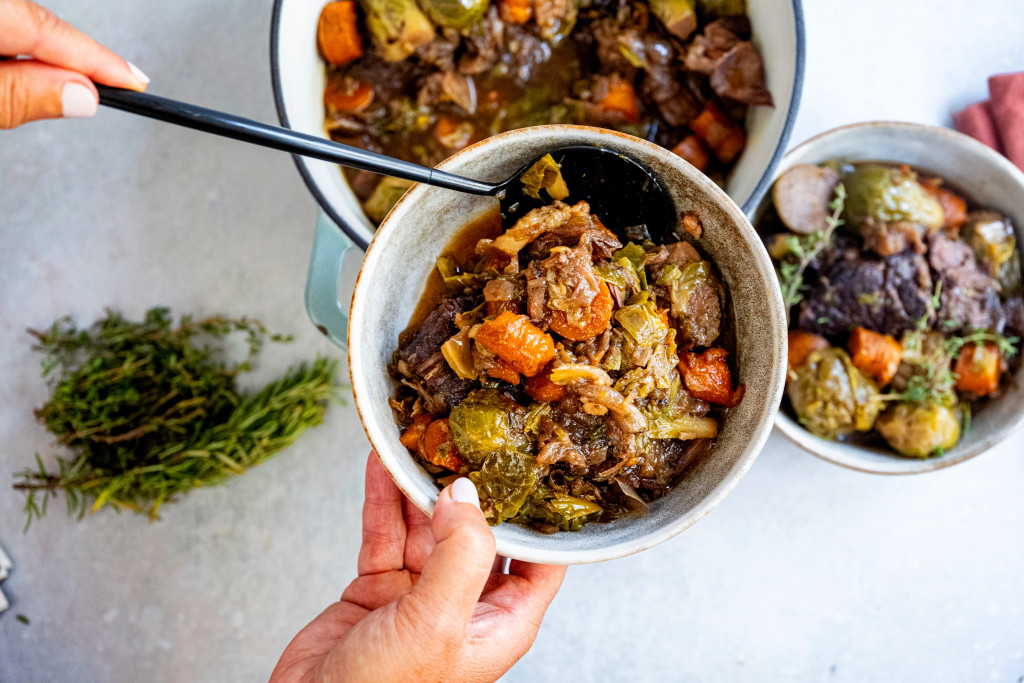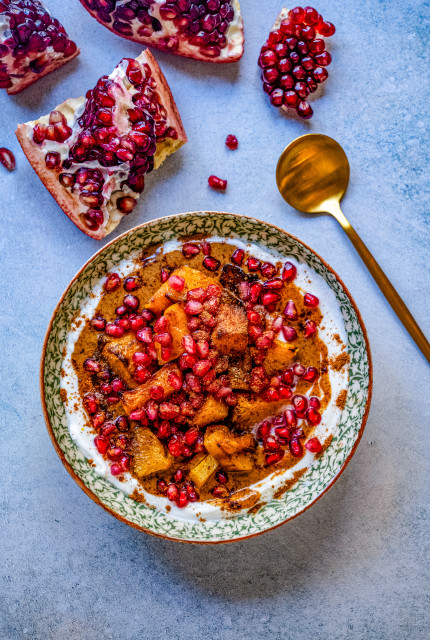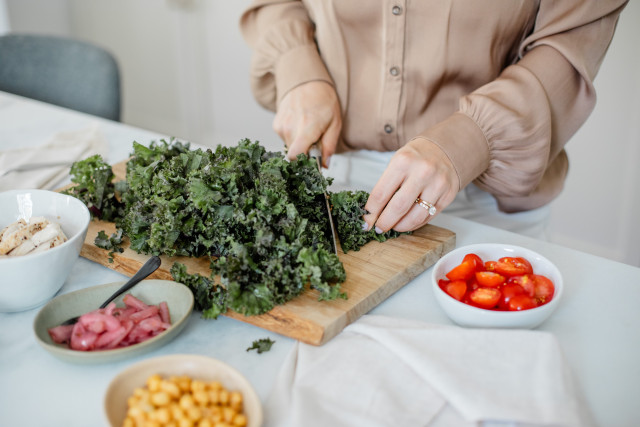
Nutrition and Skin Aging: The Role of Diet in Maintaining Youthful Skin
Aging is an inevitable process, but the rate and manner in which our skin ages is absolutely impacted by factors including what we eat. The skin, being the largest organ of the body, is directly affected by the nutrients we consume. A well-balanced vibrant and protein-rich diet -- rich in essential nutrients -- can promote healthy, youthful skin. Meanwhile, a poor diet, particularly one high in refined carbohydrates and unhealthy fats, can accelerate skin aging through mechanisms like oxidative stress and collagen breakdown.
The Impact of Diet on Skin Aging
High-Carbohydrate Diet and Skin Aging
A diet high in refined carbohydrates, such as white bread, sugary snacks, and sugary beverages, can lead to the production of advanced glycation end products (AGEs). AGEs are harmful compounds that form when proteins or fats combine with sugars in the bloodstream. This process, known as glycation, can directly impact the skin by weakening the collagen and elastin fibers that are responsible for keeping the skin firm and elastic. As these fibers become more brittle and less flexible due to glycation, the skin begins to sag and wrinkle, contributing to the visible signs of aging. Diet can have a major impact as some studies found a 25% reduction in AGEs from following a low carbohydrate diet for just four months.
Additionally, a high-carb diet often leads to elevated blood sugar levels, which can increase oxidative stress in the body. Oxidative stress occurs when there is an imbalance between free radicals (unstable molecules that can damage cells) and antioxidants (molecules that neutralize free radicals). This imbalance can accelerate skin aging by damaging skin cells and breaking down collagen, leading to wrinkles, fine lines, and a loss of skin elasticity.
High-Fat Diet and Skin Aging
A diet high in unhealthy fats, particularly trans fats and saturated fats, can contribute to skin aging through similar mechanisms as a high-carb diet. These unhealthy fats can increase inflammation and oxidative stress in the body, further contributing to the breakdown of collagen and elastin. Inflammation is a key driver of aging, as it can accelerate the degradation of collagen and elastin fibers, leading to premature wrinkles and sagging skin.
However, it's important to note that healthy fats, such as those found in olive oil, avocados, nuts, seeds, and fatty fish, are essential for maintaining healthy skin and preventing how quickly the skin ages. Fats that are rich in omega-3 fatty acids, which have anti-inflammatory properties and can help keep the skin hydrated and supple. Omega-3 fatty acids also support the skin barrier, protecting it from environmental damage and reducing the risk of premature aging.
Key Factors for Healthy Skin
Antioxidants
Antioxidants play a vital role in preventing skin aging by neutralizing free radicals and promoting skin repair. They also reduce inflammation, which can lead to redness and irritation. These free radicals are generated by factors like UV radiation, pollution, and stress, and they break down collagen and elastin. Antioxidants -- such as vitamins C and B vitamins -- as well as compounds like beta-carotene and polyphenols, help prevent this oxidative damage, thereby reducing wrinkles, fine lines, and skin sagging.
Vitamin C is notable for being a powerful antioxidant that plays a crucial role in collagen synthesis. Collagen is the most abundant protein in the skin, providing structure and elasticity. As we age, our natural collagen production declines. Vitamin C helps to counteract this process by promoting collagen production and neutralizing free radicals that can damage skin cells. It also helps to brighten the skin, reduce the appearance of dark spots, and improve overall skin tone. Wondering what foods are rich in vitamin C? Think: colorful fruits and vegetables, like bell peppers, kiwi, broccoli and berries.
The B vitamins are essential for maintaining healthy skin. Biotin specifically is known for its role in supporting the health of the skin, hair, and nails. Niacin has been shown to improve skin elasticity, enhance the skin barrier function, and reduce redness and blotchiness. In some studies supplementation was also found to reduce acne. B12 deficiencies have been noted to contribute to hyperpigmentation.
Epigallocatechin gallate (ECGC) is one of the most studied and most abundant polyphenols found in green tea; it exhibits antioxidant and anti-aging properties. Studies have seen significant improvements in skin quality in age induced animals. By consuming antioxidant-rich foods, you can help preserve skin health, slow down the aging process, and maintain a more vibrant complexion.
Collagen
Protein is the building block of the skin, and adequate protein intake is essential for maintaining the structure and function of the skin. Collagen, in particular, is a key protein that provides strength and elasticity to the skin. Collagen protects skin by acting as a precursor for collagen synthesis, removes reactive oxidative species from the cells, and inhibits the production of inflammation. As we age, collagen production naturally declines, leading to thinner, less elastic skin. Consuming collagen-rich foods, such as bone broth, or taking collagen supplements can help to replenish the body's collagen stores and support the skin's structure. Additionally, consuming a diet rich in high-quality protein sources, such as lean meats, fish, eggs, and legumes, provides the amino acids needed for collagen production and skin repair.
Exercise
In addition to a balanced diet, regular exercise is a key factor in maintaining youthful, healthy skin. Exercise increases blood flow, which helps to nourish skin cells and keep them healthy. Improved circulation also helps to remove waste products from skin cells, reducing the risk of oxidative stress and inflammation. Furthermore, exercise can help to reduce stress, which is known to exacerbate skin conditions such as acne, eczema, and psoriasis. Chronic stress levels increase lipid peroxidation, inflammation and trigger skin aging. Exercise increases myokines, specifically IL-15, which are cytokines that have a positive effect on aging. One study, comparing the effects of resistance training to aerobic exercise, found that both types of exercise improved skin elasticity and dermal structure, but only resistance training also improved skin thickness. In general exercise also promotes the production of collagen and elastin, helping to keep the skin firm and elastic. Additionally, sweating during exercise can help to unclog pores and remove toxins from the skin, leading to a clearer complexion.
Aging of the skin is a complex process influenced by a variety of factors, including diet, nutrient intake, and lifestyle choices. A diet high in refined carbohydrates and unhealthy fats can accelerate skin aging through oxidative stress, inflammation, and collagen breakdown. Conversely, a diet rich in essential nutrients and protein can support collagen production, protect against oxidative stress, and maintain healthy, youthful skin. Coupled with regular exercise, these dietary strategies can help to slow the visible signs of aging and promote overall skin health. If you are seeking support in developing an exercise and nutrition plan that is supportive of your goals then consider working with one of our Functional Medicine Dietitians to assess your deficiencies and optimize your health!


